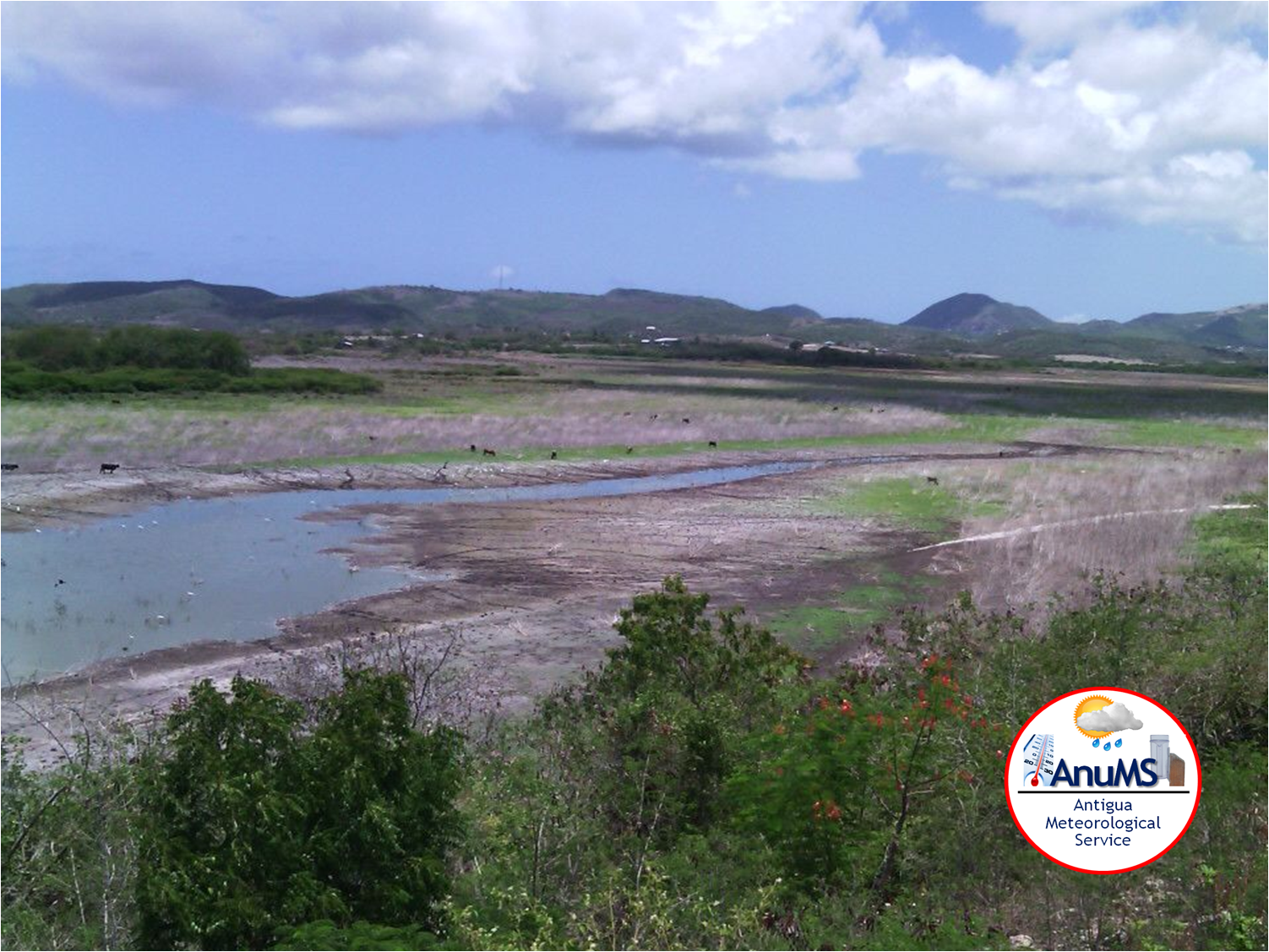
The Climate Regional Climate Outlook Forum began here on Thursday amid predictions that suggest severe drought is unlikely in the region, except perhaps in northern Belize and St. Lucia, and that recurrent dry spells may affect crop growth.
Climatologist with the Barbados-based Caribbean Institute for Meteorology and Hydrology (CIMH), Dr. Cedrick Van Meerbeeeck, told delegates attending the two-day 2018 Dry Season Caribbean Climate Outlook Forum (CariCOF), that at the end of September “we transition from the dry season into the wet season, we are currently not seeing any shorter term drought concern developing throughout the region.

But he said that long term drought might possibly develop in Antigua, northern Belize and the Cayman Islands by the end of November and that shorter term drought will possibly remain in northern Belize by the end of the year.
He predicted that by the end of January next year, the Caribbean, which by then is now into its wet season, there would be no shorter term drought concern developing throughout the region, even as he said there is the possibility that a drought watch would be issued for northern Bahamas and St. Lucia.
The CIMH said that countries were drought warnings have been issued should seek to protect resources and conserve water as well as implement management plans and monitor and repair infrastructure.
“The transition from the wet season into the early dry season in Belize and the Caribbean islands still brings frequent wet days and wet spells through December, leading to concerns of flood and flash flood potential.
“This concern remains throughout the period in the coastal Guianas which are in their secondary wet season. The forecasts suggest severe drought is unlikely, except perhaps in northern Belize and St. Lucia, but recurrent dry spells may affect crop growth. Temperatures will be seasonably comfortable,” the CIMH said.
Van Meerbeeeck later told the Caribbean Media Corporation (CMC) that the meeting here is discussing the implication of the forecast.

“We are entering the dry season and in this dry season particularly there is a risk for drought, maybe not exceptional drought as we had in 2015 across the region…and as late as 2016.
“Drought is a real likelihood now because we have a phenomenon called El Nino, which is a major driver of drought for the region. So drought is one thing to look out for”.
But he said “the good news” for the Caribbean is that heat may not be a factor and we will be more comfortable in terms of heat in the coming three months”.
He said that by the time the month of April rolls by next year “the hotter part of the year comes back and we will see some heat waves starting to occur, first in Trinidad and Tobago and Belize and later in summer and later the rest of the Caribbean.”
Van Meerbeeeck told CMC with regards to the frequency of rain in the Eastern Caribbean during the first three months of the dry season next year, it would be regularly.
“You don’t need to be so much cautious about flash flooding when the New Year is coming. Up until December there is still a concern for potential flash flooding occurring across the region and up until the end of January in the Guianas.”

He said in the first three months of 2019, the Eastern and Northern Caribbean have “low chance for flash flooding, and is typical in the middle of the dry season.
“As the dry season comes to an end then it is when we start seeing intense showers coming …and then is when we have to start looking at the chances of extreme wet spells that endanger flash flooding.”
Van Meerbeeeck said that farmers in the Caribbean would have to be very particular about the new dry season, noting “in any regular dry season there is already less water available for rain-fed agriculture..
“When there is a drought it means there are less rain than usual and if usual is already quite dry drought means even drier than that,” he said, noting that the situation could help stakeholders in the tourism sector.
“For instance in the tourism industry what is to be noted is that there are going to be more dry days than usual. That is positive news for taxis that want to organise tours for instance because more often there will be clement weather to take tourists on tours.
“Meanwhile, CIMH Principal, Dr. David Farrell, told the Forum that the region should be prepared for what he termed the challenge posed to water security in the Caribbean as it relates to the energy sector.
“One of the things that obviously comes to mind is the impact of drought on the energy sector, whether you are talking about the hydro-electric sector or you talking about geothermal sector.
“Both of these sectors need a certain amount of water to generate energy sufficiently (and) so we need to start looking beyond the traditional sectors and looking at new sectors….he said, adding this becomes critical especially as we may ask what happens when we have insufficient water supplies.
He said this is also a situation that could confront the tourism sector.
The two day forum will also feature sessions that advance a roadmap and action plan for Caribbean climate services and the organisers said that the intention is to strengthen regional resilience to mitigate the risks posed by natural hazards.
Advertise with the mоѕt vіѕіtеd nеwѕ ѕіtе іn Antigua!
We offer fully customizable and flexible digital marketing packages.
Contact us at [email protected]
















